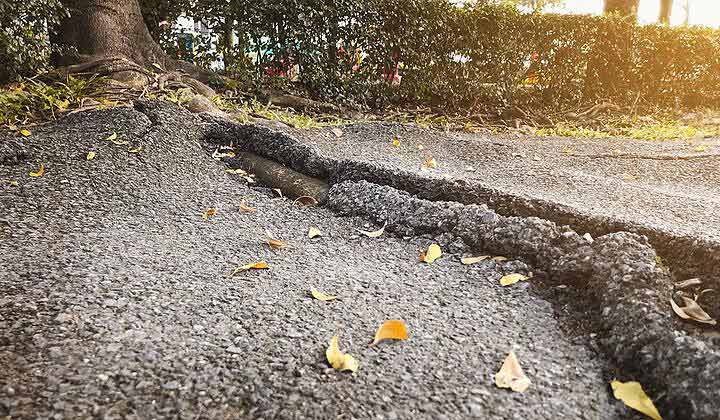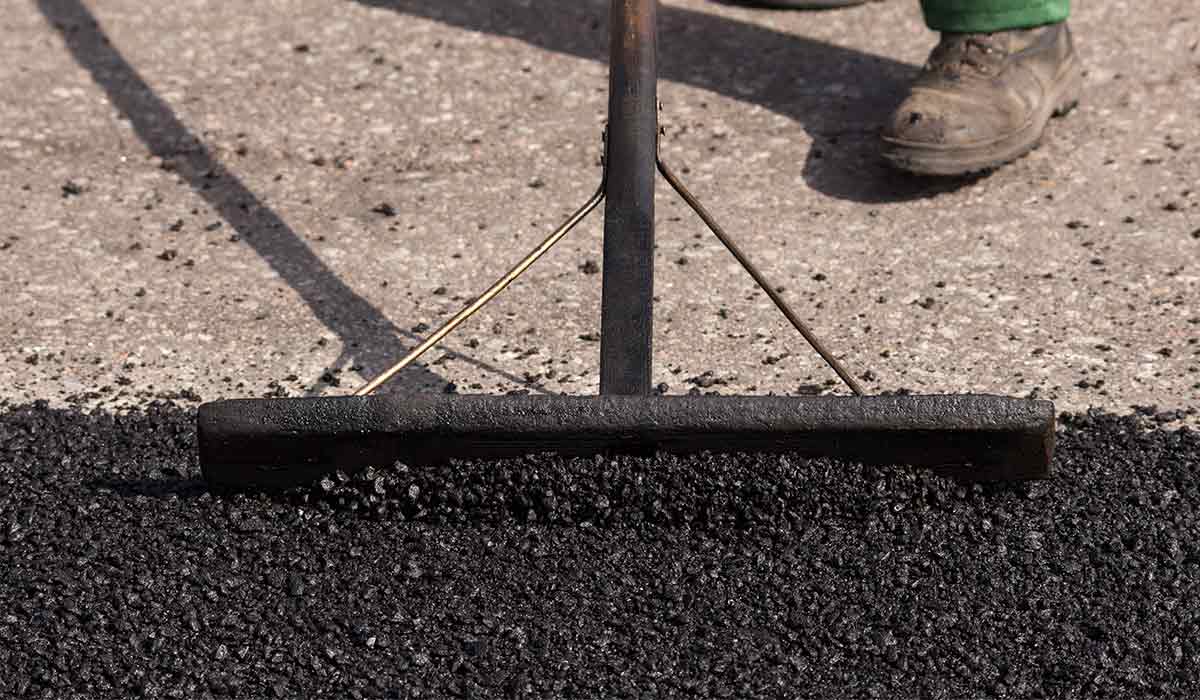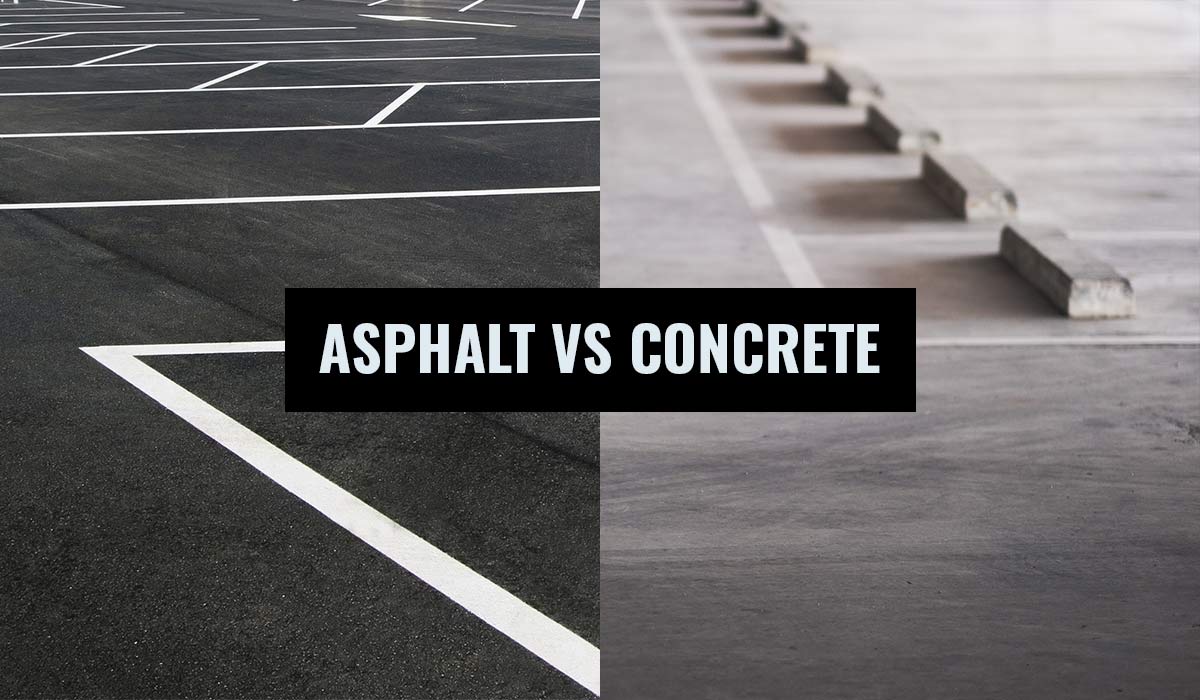Keeping Your Asphalt Pristine: Why It Matters
Key Takeaways
- Consistency Matters: Regularly clean your asphalt to prevent deterioration.
- Right Tools for the Job: Use non-metallic brushes and suitable cleaners like soda, detergent, and eco-friendly vinegar and baking soda.
- Eco and Safety First: Choose environmentally friendly options and wear protective gear during cleaning.
- Preventive Maintenance: Incorporate sealcoating and crack filling to extend asphalt life.
- Seasonal Planning: Schedule thorough cleanings during spring and fall to prepare for extreme weather.
The Value of Clean Asphalt
Everyone loves spotless pavement! Keeping your asphalt clean isn't just about appearances; it plays a crucial role in extending its lifespan. Regular cleaning prevents buildup of harmful substances and minimizes wear and tear. Imagine your driveway or parking lot looking as good as new, all year round—that's the power of routine maintenance!
Asphalt vs. Concrete: Know the Difference
It’s important to recognize that asphalt and concrete have different needs when it comes to maintenance. Unlike concrete, asphalt's flexibility makes it prone to oil stains and weather damage, requiring specific care to maintain its integrity. Knowing these differences helps you choose the right cleaning agents and methods.
Why Regular Cleaning Is Essential
Regular maintenance keeps your asphalt in top condition, preventing the small issues from becoming big, expensive ones. It’s about safeguarding your investment and enhancing your property's curb appeal. Plus, it’s much easier to manage little cleans regularly than a major one sporadically!
Prep Steps: Getting Your Asphalt Ready for a Clean Sweep
Gather Your Tools
Before cleaning, make sure you have the right tools. You’ll need:
- A powerful rotary broom like the Bensink power broom & sweeper
- A non-metallic scrub brush
- A leaf-blower [optional]
- A spray bottle
- Protective gloves
- Absorbent materials like cat litter or baking soda
Bensink Rotary Power Broom and Sweeper - Gas Powered Broom
Pre-Cleaning Setup
Start by clearing your asphalt surface of any loose debris—leaves, twigs, and stones. If there are liquid spills, particularly oils, use absorbent materials to soak them up. This prep work ensures that your cleaning agents can do their job more effectively.
The Importance of a Good Beginning
A well-prepared asphalt surface makes the cleaning process smoother and more effective. By removing surface debris and soaking up fluids, you ensure that the cleaning agents directly target the stains and dirt, not just the loose material on top.
Choosing the Best Cleaning Agents for Asphalt
Soda Magic
Soda isn’t just for drinking—it’s great for cleaning oil stains from asphalt! The acids in soda help break down the grease. Here’s how to use it:
- Pour a generous amount of soda on the stain.
- Let it sit for a few hours.
- Rinse away with water using a hose.
Detergent: The Gentle Power
For smaller, fresher oil spills, detergent can be incredibly effective. Mix a mild detergent with warm water in a bucket, apply it to the stain, and scrub gently with your non-metallic brush. Rinse thoroughly with clean water to avoid leaving residue.
Vinegar and Baking Soda: Eco-Clean
These kitchen staples aren’t just safe around plants; they're also effective asphalt cleaners. Make a paste with baking soda and vinegar, apply it to stains, and let it fizz. After a few minutes, scrub and rinse. It’s gentle, eco-friendly, and effective.
Scrubbing and Rinsing Techniques
Choose the Right Brush
Using a non-metallic brush is crucial. Metal brushes can damage asphalt surfaces and leave unsightly marks. A stiff-bristled broom or brush will do the trick without harming your pavement.
Scrubbing Best Practices
Scrub gently but firmly to remove the stains without damaging the asphalt. It’s about finding the balance between effective stain removal and preserving the integrity of the surface.
Rinsing Right
After scrubbing, rinse the area thoroughly with clean water. Ensure all cleaning residue is washed away, as leftover chemicals can damage asphalt over time. Use a hose for best results, and consider the direction of water flow to avoid affecting nearby plant life.
Beyond Cleaning: Additional Maintenance Tips
Preventive Measures
Sealcoating and crack filling are great ways to protect your asphalt. They not only prevent water penetration and further damage but also give your pavement a fresh, new look. Consider these treatments as part of your regular maintenance schedule.
Need to know which crack filling is best for your needs? Check out the RY10 crack filler machine and the Deery crack sealant that goes best with it.
 RY10 Asphalt Crack Fill Machine
RY10 Asphalt Crack Fill Machine
Cleaning Frequency and Timing
How often should you clean your asphalt? It depends on your environment and usage. Typically, a good rule of thumb is to give your asphalt a thorough cleaning twice a year. Spring and fall are ideal times for this, preparing your pavement for summer heat and winter cold.
Deery Super Stretch Crack Sealant / Filler - 36 Boxes
Wrapping Up: Maintaining Asphalt’s Beauty and Durability
Regular cleaning and maintenance not only keep your asphalt looking great but also extend its life and functionality. By choosing the right cleaning agents and following the guidelines laid out here, you can ensure that your asphalt remains a durable and attractive part of your property. Remember, a little care goes a long way toward saving time and money in the long run!
FAQs: Keeping Your Asphalt Impeccable
Q: Can regular household items be used to clean asphalt surfaces?
A: Absolutely! Common household items like detergent, baking soda, and vinegar are not only effective but also environmentally friendly options for cleaning asphalt. These items are particularly good for small spills and general surface cleaning.
Q: How often should I clean my asphalt driveway?
A: For best results, sweep your asphalt surfaces regularly to remove debris and clean spills as soon as they occur to prevent staining. A thorough cleaning is recommended twice a year, ideally in the spring and fall, to maintain its appearance and longevity.
Q: What is the best method to remove oil stains from asphalt?
A: For fresh oil stains, using a combination of cat litter or baking soda to absorb the oil followed by cleaning with a detergent solution is very effective. For older or larger stains, commercial asphalt cleaners like those available at Asphalt Kingdom are designed to tackle tougher jobs.
Q: Is it safe to use bleach on asphalt?
A: Bleach should be used cautiously. It’s effective for large, stubborn stains but can be harsh on asphalt and surrounding plants. Always dilute it properly and rinse the area thoroughly after application to avoid any damage.
Q: Can I use a power washer on asphalt?
A: Yes, but with care. A power washer can be effective for removing dirt and grime, but using the correct pressure setting is crucial to avoid damaging the asphalt. Low-pressure settings and a wide-spray nozzle are recommended to prevent erosion of the surface.
Q: What preventive measures can I take to reduce the need for frequent cleaning?
A: Applying a sealcoat every two to three years can significantly reduce the amount of cleaning required by protecting the asphalt from UV rays, water, oil, and chemical damage. Additionally, repairing cracks and potholes promptly prevents further deterioration and keeps the surface cleaner.
.jpg?width=720&height=405&name=clean-asphalt%20(1).jpg)







